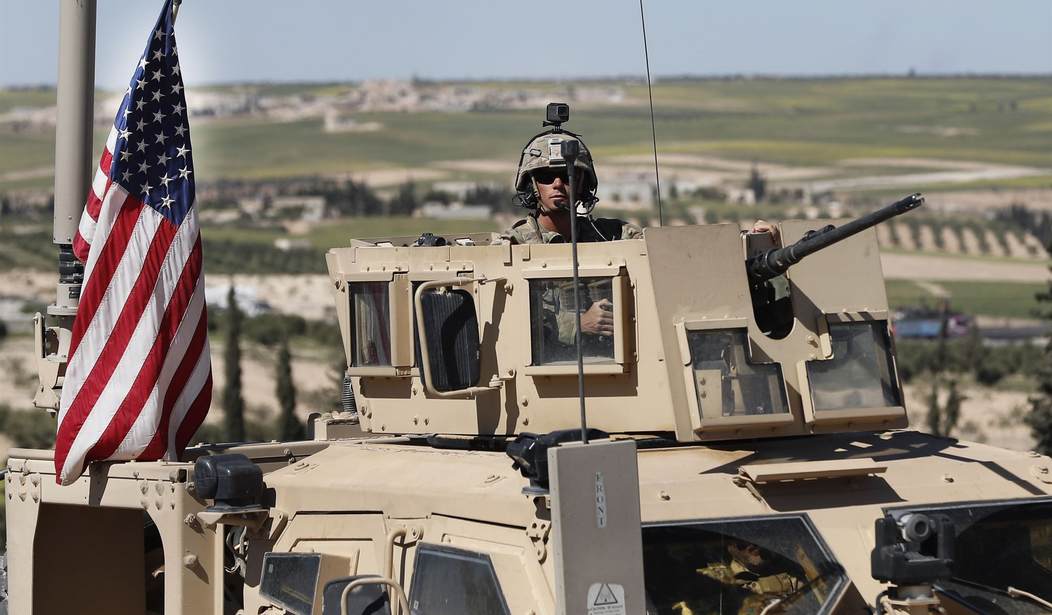In February of 1862, Ulysses S. Grant forced the surrender of Confederate forces at Fort Donelson in Kentucky. His demands shocked his Confederate opponents and military observers from across the world accustomed to more chivalrous commanders.
That demand was for a simple unconditional surrender. Turn your army over to the mercy of the victor with no guarantees of treatment.
Two years later General Grant turned his two most celebrated subordinates, William Tecumseh Sherman and Philip Sheridan, loose on the remaining sources of supplies in the South. By 1865, the heart of Virginia’s Shenandoah Valley, plus Georgia and the Carolinas were a howling wasteland bereft of crops, livestock, infrastructure, and also the will to resist.
Sherman’s maxim “war is hell” did not reflect a bloodthirsty or cruel nature so much as a key reality. To obtain a complete victory as Grant and Lincoln expected, one must have the willingness to use the most extreme measures possible. Sherman understood that you have to make war terrible enough to kill the will to keep fighting.
That requires not only a powerful fighting force, but also a civilian and government will to go to those measures.
Both the United States and the Confederate States understood that victory for one required annihilation of the other. Both populations willingly underwent the horror required to bring about and to defend against that fated result.
Another important modern example of commitment to total victory and extermination of the enemy regime is World War II. The evil of National Socialism combined with American rage over Pearl Harbor ensured that Franklin Roosevelt and Winston Churchill could confidently rely on public opinion to back any measure necessary to end the war as quickly as possible. Entire cities in Europe and Asia virtually disappeared, but this did ensure a quicker ending to one of the world’s most costly wars.
Recommended
For nearly two decades, U.S. military forces have battled the Taliban and other terrorists in Afghanistan. Few would argue that the United States lacked sufficient reason to storm Afghanistan in the wake of 9/11. Recent Soviet experiences there with heavy conventional forces likely suggested that the US follow the example of Joshua and use smaller and more agile forces to defeat those who supported the attacks on America.
Over that time, U.S. and allied forces have re-experienced the frustrations experienced by Great Power leaders from Alexander the Great to Mikhail Gorbachev. British poet Rudyard Kipling, often portrayed as a cheerleader of empire, penned this warning in the 1800s, “When you’re wounded and left on Afghanistan’s plains/And the women come out to cut up what remains/Jest roll on your rifle and blow out your brains/An go to yer Gawd like a soldier.”
Though on the wrong side of ideas since the election of Donald Trump, Max Boot was right in his books to question whether or not the Civil War and World War II served as the best examples of an American way of war. In his view America, like other Great Powers, engaged in countless small wars and corrective actions extensively.
Boot claimed that small wars, such as the Quasi Naval War with France or actions against Tripoli by Presidents Jefferson and Madison are actually America’s preferred method of using force to achieve defense and security ends. The definitive endings of the Civil War and World War II actually dangerously mislead the public and wrongfully tarnish the image of any military efforts that do not end in complete capitulation from the enemy.
Additionally, the survival of enemy regimes does not necessarily indicate that they “won” the war.
Unconditional surrender requires the complicity of the defeated. Robert E. Lee weighed the sting of surrender against the perpetual agonies that continued flight to guerrilla war in the Appalachians would have wrought. Emperor Hirohito resisted the national suicide impulses of his military leaders in his decision to give in to superior Allied arms.
It’s important to recognize the willingness of the defeated to give up without taking credit away from the valiant and hard earned efforts of the victors.
President Donald Trump has made “winning” a definitive theme in his own engagements and his presidency as a whole. As the U.S. exits Afghanistan on his watch, the president has an important task in creating a responsible definition of victory in this and future such conflicts.
Some opponents, especially in non-industrialized countries, have little to lose. Sun Tzu emphasizes the need to target what one’s enemy holds most dear in an effort to win. Fighters in Afghanistan live in Spartan circumstances. Most have almost nothing to lose except their honor and pride.
Defeating such a people to the point of surrender requires a Carthago delenda est mentality. Every individual and stronghold must be annihilated. If a single edible plant springs up, it must be cut down. Starvation and deprivation become weapons of war.
It’s not a criticism of Americans that the country is unwilling to pursue this level of conflict. That said, leaving Afghanistan is not a defeat if the action meets reasonable war aims.
Historians regard the Korean War as a “tie,” which is unfair to both the military and President Harry Truman. His war aims lay in defending South Korea. Defeating Communist China and North Korea would have required a regional nuclear conflict that could have fatally poisoned both South Korea and Japan. While North Korea is a nuisance, it has never again seriously attacked its southern neighbor. In this light, one can call the Korean War a victory.
Whether or not Afghanistan is a victory depends on the future. Should the Taliban and their allies reject terror in the long term out of exhaustion and fear of a U.S. return to active operations, count it as a win for American arms. Likely this was the best outcome the country could have hoped for short of imposing a currently unimaginable escalation of violence.
And Grant probably would have approved.
























Join the conversation as a VIP Member